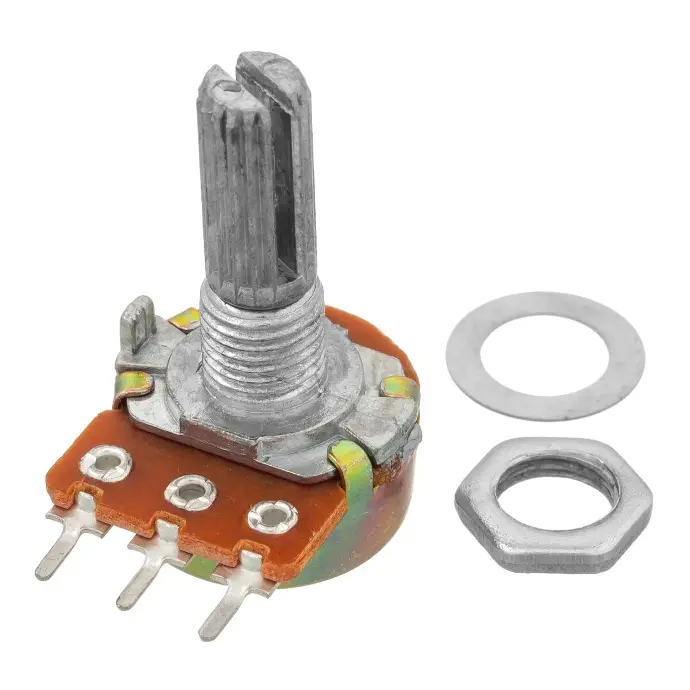A potentiometer (or pot for short) is a simple, rotary potentiometer that is used to adjust the intensity of an electronic signal. Potentiometers are often used in musical instruments, audio equipment, and other electronic devices to control the level of sound or power.
Pots are electrical components with three terminals (i.e. pins or legs): one for input voltage (e.g. 5V), one for output voltage (e.g. GND) and one for picking up the value of the pot (we’ll call this the wiper).
Mechanically speaking, pots are physically adjusted usually using your fingers. Both rotational and linear pots are common.
If you want to control the speed of your electric motor, the position of your servo, LED brightness, filter cutoff on your synthesizer, gain on your guitar amp or thousands of other cool things in your own embedded system, a pot might just be the solution for you.
| 100K | 10K | 10K RM065 | 5K | Knob | |
Resistance: | 100K-Ohms +/- 20% | 10K-Ohms +/- 20% | 100K Ohm +/-30% | 5K-Ohms | Material | Plastic |
Rated Power: | 0.5W | 0.5W | 0.5W | 0.5W | Inner diameter: | 6mm |
Sliding Noise: | -47mV | -47mV | N/A | -47mV | Outer diameter: | 15mm |
Total Rotation: | 300° +/- 5° | 300° +/- 5° | 210°± 20° | 300° +/- 5° | Height | 17mm |
Type: | Linear | Linear | Linear | Linear |
|
|



